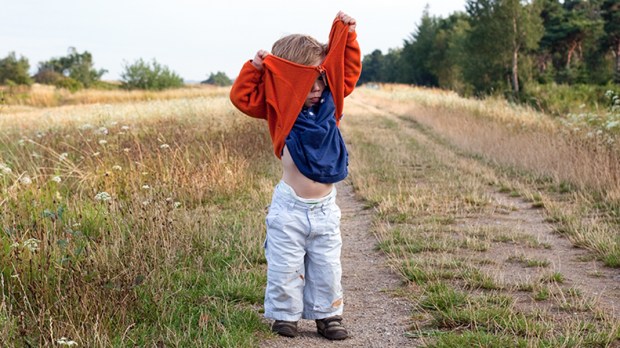Lenten Campaign 2025
This content is free of charge, as are all our articles.
Support us with a donation that is tax-deductible and enable us to continue to reach millions of readers.
There’s been an alarming rise in mental illness, especially depression and anxiety, over the last 50 years, and not just among adults, but children as well. The world is scrambling to explain it. Is it just that we’re more aware of depression than we were five decades ago? Is it technology? Is it parenting?
According to Peter Grey, a research professor at Boston College, the the problem is more universal: “The changes seem to have much more to do with the way young people view the world than with the way the world actually is.” It has to do with our shifting attitudes toward our own power to change our lives.
According to a meta-analysis that gathered info from almost 25,000 students between 1960 and 2002, “Young Americans increasingly believe their lives are controlled by outside forces rather than their own efforts. … The implications are almost uniformly negative, as [this attitude] is correlated with poor school achievement, helplessness, ineffective stress management, decreased self-control, and depression.” The data, he says, indicates that “young people’s belief that they have control over their own destinies has declined sharply over the decades.”
This information really strikes a chord with me, because there is nothing I want for my children more than for them to learn that they’re not helpless. That they do have the power to effect real change in their own lives and in the world. I want them to have a healthy sense of self-esteem that encourages them when they run into life’s challenges, however daunting. Essentially, I want them to have a strong sense of self-efficacy.
But self-efficacy, “a person’s belief in his or her own ability to succeed in a particular situation,” is exactly what we are losing. When we believe that we don’t have the power to bring about change, our self-esteem is next to go. After all, if you see most personal challenges as insurmountable, you won’t have a very high opinion of yourself in general.
It’s what we all want for our children. When we cheer them on, when we remind them over and over, “You can do it!” we’re trying to instill this attitude. But all the positivity and praise in the world won’t give our kids a sense of self-efficacy. It has to come from inside them. Just because they know that you think they can do it doesn’t mean they’re convinced of that themselves.
Ultimately, this means that we have to let our children fail. We owe them opportunities to fail. I’m not saying just turn them loose in the world with no guidance or supervision, of course — but experiencing failure gives them a invaluable gift. Even a kindergartner knows that there’s no glory in winning when losing isn’t an option. It’s through failure as much as success that we learn that we do have some control over our lives.
It’s our instinct, as parents, to want to shield our children from failure at any cost. But in practice, that means that we’re often standing in the way of their own success. If I don’t let, say, my 10-year-old climb that tree, for fear he’ll fall, I may be protecting him from some bumps and bruises. But I might also be denying him the opportunity to face a challenge, and experience in the most personal way, that he is up for the task.
Risk is a scary concept for parents. What if we put our child in that advanced class, but he struggles? What if we let them have that rambunctious sword fight, and somebody ends up with a goose-egg? Our worries are often legitimate, and the risks always have to be weighed, but we often get so caught up in thinking what may happen if the child fails that we forget what will be gained if the child succeeds.
For children to learn self-efficacy, they need to encounter situations where success isn’t guaranteed. This is why it’s not just healthy, but absolutely essential, that we let our children take (age-appropriate) risks. Then when they fail, they will understand that the failure wasn’t just random fate — that it can be learned from, and avoided. And even better, when they do succeed, they know it wasn’t just luck, it was because of their own capacity to rise to a challenge. Failure will be less devastating, and success will be more empowering, and they’ll be better equipped to face their life from a place of confidence.

Read more:
Here’s the real reason we’re afraid of failure

